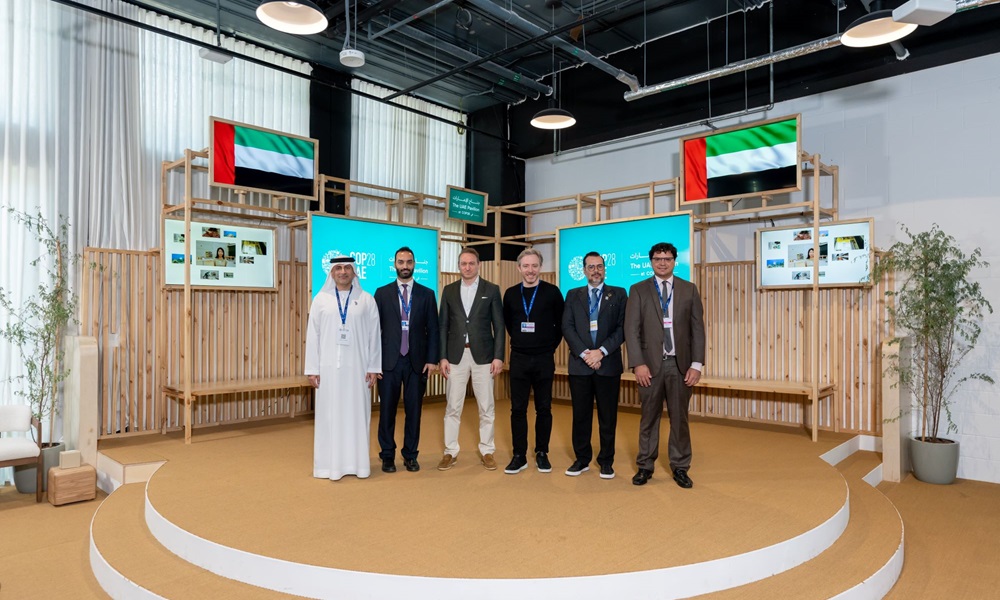A potentially groundbreaking initiative known as the Voluntary Recycling Credits (VRC) was introduced at the UAE Pavilion at COP28 this week.
Spearheaded by an international consortium led by Roland Berger and BEEAH Group, in collaboration with DFINITY Foundation and the International Solid Waste Association (ISWA), the initiative marks a new chapter in climate action.
The VRC Initiative represents a robust collaboration between public and private sectors, transcending national borders. It is designed to address key market challenges in achieving net-zero targets and circularity, such as double-counting, transparency, and cost-effectiveness.
Hani Tohme, Managing Partner of Roland Berger Middle East, emphasised the importance of a cooperative mindset and cross-national approach in shaping future industry standards.
“The VRC Initiative is built to solve a concrete market gap: with the private sector setting more commitments towards net-zero and circularity, we also acknowledge major barriers to deliver on it. Double-counting, transparency, cost-effectiveness,” said Tohme.
“We decided to tackle it over solid collaboration and exchange between public and private sector, with a cross national approach and a cooperative mindset. Involvement from different stakeholder across countries and multiple layers of the value chain is a crucial part of the VRC value proposition, which aims at a joint effort to shape the future industry standards.”
First announced in Paris by Roland Berger, BEEAH Group, and ISWA, the VRC Initiative aims to change global recycling practices by promoting standardisation and transparency in offset activities. Its Proof of Concept was successfully showcased at COP28, with plans for a full-scale platform launch in 2024.
Khaled Al Huraimel, Group CEO of BEEAH Group, highlighted the initiative’s alignment with the UAE’s Net Zero by 2050 Strategic Initiative. He underscored the VRC Initiative’s role in driving global landfill waste diversion, accelerating the circular economy, and supporting emissions reduction.
“BEEAH Group has been working relentlessly towards a zero-waste to landfill future, which we see as closely linked to fulfilling the UAE’s Net Zero by 2050 Strategic Initiative and broader sustainability agenda. While we drive increasing landfill waste diversion rates, accelerate the circular economy and support lower emissions in the UAE and the region, we want to enable similar positive impact globally,” said Al Huraimel.
“The VRC Initiative is a standardized incentive that is inclusive of all stakeholders across sectors, from waste collectors and recycling companies to large organisations who are committing to addressing the environmental impact of waste produced in their operations.”
The initiative comes at a time when the world is grappling with a staggering generation of waste – up to 18 billion tonnes annually, with only half being effectively managed. The VRC Initiative seeks to address this by establishing standardized rules and processes for institutions to offset their waste footprint through a blockchain-based marketplace.
The DFINITY Foundation, as the technology partner, will employ the Internet Computer blockchain to ensure a secure, auditable, and transparent platform. This technology will play a crucial role in establishing the initiative as a global standard for recycling incentives.
Brazil, represented by Adalberto Maluf, National Secretary of Urban Environment and Environmental Quality, expressed strong support for the VRC Initiative. The country, which is on a path to a circular economy, sees the initiative as an important tool to address waste management and plans to showcase it at COP30.



